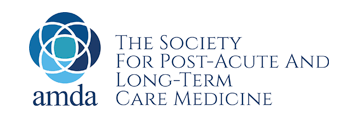Ethical thoughts on COVID and Duty vs Risks
By: Joseph Libby
“Do the right thing.”
That’s what we’re supposed to do, right?
Any ordinary day in medicine I don’t even have to think about this, it’s automatic. Without thinking about it consciously, I like to think that I do a pretty good job assessing risk and benefits for my patient, and somewhere deep in my brain concepts like beneficence, non-maleficence, autonomy, justice, virtue, professionalism, collegiality, teamwork, medical ethics, gets processed so that I “do the right thing.“
However, over the past month and a half dealing with this pandemic, and especially the past couple weeks as it has involved our patients and team personally, I have literally lost sleep over these concepts.
If PPE were not in short supply, and this virus was “only“ as bad as the flu, or RSV, or C. diff, or norovirus, or scabies, or any of a number of outbreaks all of us have already faced, I don’t think any of us would be sweating it. We would don our gear and go into any building, anytime, to see any patient.
And actually, so many of us have continued to do just that in spite of the short supply, or in some cases absence of PPE.
Now it is mid-April, and globally and nationally, it does look like “the curves are flattening“ which means hospitals are probably seeing their peak number of patients. Smarter people than me are modeling this, but my impression is that we in post-acute and long term care will be on the receiving end of many of those patients in the upcoming weeks. Additionally, in spite of social distancing, this virus is very much in our communities. It is just a matter of time before every one of our facilities has COVID cases.
I have found many articles on weighing risks and benefits and the ethics of caring for COVID patients. As one of my seasoned nurse practitioners pointed out to me, this concern is not new. It was a big issue when HIV first came out, it was discussed for SARS, MERS, Ebola, even non-medical disasters like Katrina, which give us pause to weigh our professional duties against the potential risks to ourselves.
On the other side are the patients who contract this illness and are suffering. At a time when they most need human comfort, they are literally isolated, removed from family, friends, caregivers. Deprived of human touch and even the simple comfort of seeing a human face. In more serious cases, completely isolated like a pariah. Think how much worse such an experience must be for an older person, who may be thinking, rightly, that this is how they are going to die, alone and uncared for. Indeed, some of these victims are healthcare workers, our colleagues. All of these patients want, need, and deserve caring and compassionate physicians, nurses, aides. Experience has taught us that most of the reasonably young and healthy will have mild to moderate illness and recover. But is exactly our patient population who are most likely to not do well, and want, need, deserve compassion and care.
I have to say that in spite of the challenges, I have seen each facility I work with diligently keeping up with the latest guidance, trying to obtain the supplies they need to protect their staff, while still giving care to our vulnerable patients. It’s no surprise that some have done a better job than others, and some have been more fortunate than others, based on geography, staffing, finances, administration, and yes, even Medical Director guidance.
So what are we to do?
My advice is for each of us to do a little introspection, consider the needs of the patients but be fair and honest about your own abilities, protective equipment, comfort level, and fears. If you do not have proper skills, PPE, and/or will be so anxious or even fearful that you may put yourself in danger, don’t go in. It could lead to harm to yourself and in turn lead to further spread to other people as well. Consider alternatives like Telehealth, or if necessary “tap out” if you need mental health recovery time. On the other hand if you have skill, experience, proper PPE, and the confidence that you can not only do your job but that you can give Care to your patients, then do it! The rewards for the patient, and yourself, will be worth the risks.
